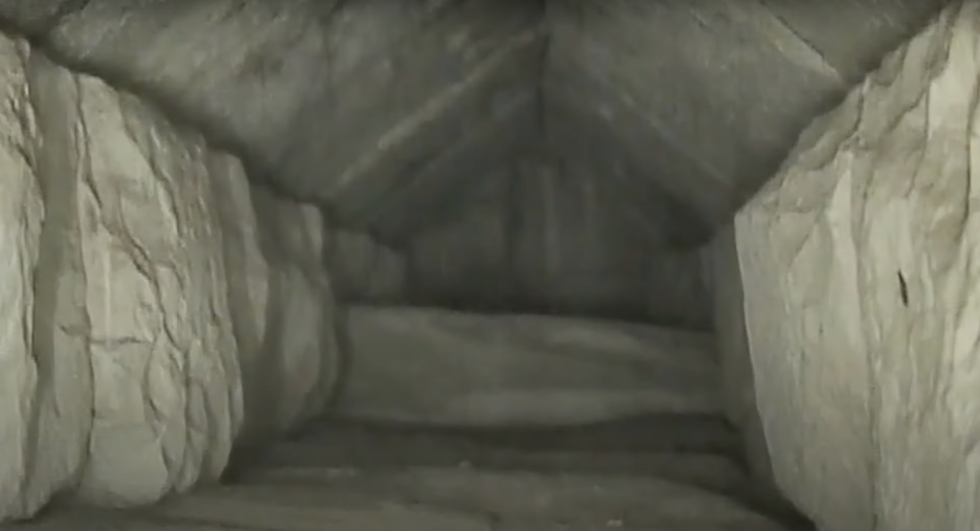Science & Tech
Ariana Baio
Mar 02, 2023
Corridor discovered in 4,500-year-old Great Pyramid of Giza
content.jwplatform.com
For centuries, the planning and construction of the Great Pyramid of Giza have remained a mystery to researchers.
But a new discovery, announced on Thursday by Egyptian antiquities officials, could help scientists further understand the origins of the pyramid.
Using non-invasive technology, scientists discovered a new corridor, nine meters (30 feet) long, and 2.1 meters (7 feet) wide located approximately seven meters above the main entrance.
Footage of the pyramid’s empty corridor, unveiled on Thursday, shows a long room made out of stone blocks and a vaulted stone ceiling.
Sign up for our free Indy100 weekly newsletter
Egyptian archaeologist Zahi Hawass said it represents a “major discovery” as it could help scientists figure out if King Khufu’s burial chamber still exists inside the pyramid.
Additionally, Hawass speculated that there could be “something important” in the space below the corridor.
The head of Egypt’s Supreme Council of Antiquities, Mostafa Waziri said they were, “going to continue our scanning… to figure out what we can find beneath it, or just by the end of this corridor.”

The discovery was made through the Scan Pyramids project, an international project that uses non-invasive technology to map internal voids and better understand the pyramids’ structures.
Some of the technology used includes infrared thermography, 3D simulations, and cosmic-ray imaging. Scientists fed a 6-millimeter-thick endoscope from Japan through the pyramid’s walls to help collect the data.
The Pyramid of Giza is the last oldest of the Seven Wonders of the Ancient World and the last one largely standing.
Have your say in our news democracy. Click the upvote icon at the top of the page to help raise this article through the indy100 rankings.
Top 100
The Conversation (0)














